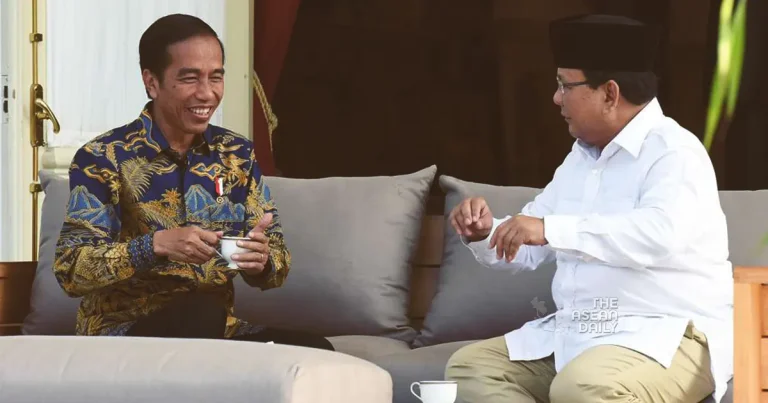15-2-2024 (JAKARTA) The outcome of Indonesia’s presidential election held on Wednesday is poised to bring about a significant shift in the political landscape of Southeast Asia’s largest economy. Analysts predict a power struggle between Prabowo Subianto, who has declared his victory, and the incumbent leader Joko “Jokowi” Widodo.
Unofficial quick counts from major pollsters as of 10 a.m., based on approximately 95% of the votes counted at sample polling stations, indicate that Prabowo is leading with 57% to 59% of the ballots cast. His rivals, former Jakarta Governor Anies Baswedan, stand at 24% to 25%, and former Central Java Governor Ganjar Pranowo at 15% to 17%.
Experts suggest that Prabowo’s popularity has grown due to his selection of Gibran Rakabuming, Jokowi’s eldest son, as his running mate and the policy support he received from the highly popular incumbent president, Jokowi. Notably, Jokowi did not officially endorse any candidate in the race. Prabowo had previously suffered defeats against Jokowi in two fiercely contested presidential elections.
Jun Honna, an expert in Indonesian politics and a professor at Japan’s Ritsumeikan University, highlighted the significance of Prabowo’s majority votes, stating that it symbolizes Jokowi’s arduous efforts. Honna told Nikkei Asia, “That Prabowo gained about 58% of votes symbolizes how hard Jokowi worked.”
The General Elections Commission has until March 20 to announce the final results. Prabowo himself acknowledged the need to wait for the official tally despite claiming victory on Wednesday night. However, given his substantial lead in the sample counts, many observers perceive Prabowo’s triumph as almost certain.
Now, attention turns to how Prabowo will solidify his power before assuming office in October, as well as how he will fulfill his campaign promises, according to analysts. Honna emphasized that a new power struggle between Prabowo and Jokowi has commenced, with Prabowo viewing the election results as his personal achievement.
“From Prabowo’s point of view… the most important thing is how he will weed out Jokowi,” Honna stated. “Once his administration begins, I think there will be a growing motivation to reduce Gibran’s influence and distance himself from Jokowi’s clout as much as possible,” he added. Honna also noted that Jokowi’s strategy to retain influence remains unclear but may become apparent in the coming months.
During the campaign, Prabowo repeatedly emphasized his intention to continue Jokowi’s key policies, including the relocation of the capital from Jakarta to Nusantara, a new city being constructed on the island of Borneo, as well as the development of a domestic processing industry for natural resources instead of raw material exports.
However, doubts have arisen regarding Prabowo’s ability to deliver on his promises. Honna pointed out that Prabowo’s top priorities are the implementation of a costly 460 trillion rupiah ($29 billion) free lunch and milk plan for schools and expectant mothers, as well as an increase in defense spending. These policies could potentially impact Jokowi’s agenda, including budget allocations for the new capital, estimated to cost 466 trillion rupiah.
“There is uncertainty surrounding fiscal stability, which will depend on who Prabowo appoints to key ministerial positions,” highlighted Dedi Dinarto, lead Indonesia analyst at public policy advisory firm Global Counsel.
Richard Borsuk, an adjunct senior fellow at the S. Rajaratnam School of International Studies at Singapore’s Nanyang Technological University, shared a similar view, asserting that Prabowo’s ministerial appointments will have implications for the market. “Markets will closely monitor whether the fiscal discipline guarded by Finance Minister Sri Mulyani will be maintained, or if Prabowo will significantly increase government spending to worrying levels,” Borsuk stated.
While many Indonesians were attracted to the defense minister’s promise of “continuity” with Jokowi’s policies, Analyst cautioned that such continuity is far from guaranteed. He highlighted the uncertainty surrounding the impact of Jokowi’s support and his son’s role as vice president on Prabowo’s governance, the extent of continuity in Jokowi’s legacy, and the substance of the foreign policy agenda.




